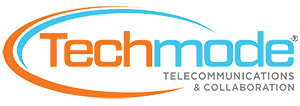Hosted PBX vs. On-Premises PBX: Making the Smart Choice for Business Communications
Businesses looking to upgrade their phone systems face a critical decision: should they stick with traditional on-premises PBX or make the switch to a hosted solution? The difference isn’t just about where your phone system lives—it’s about reliability, cost structure, and how your team communicates in an increasingly distributed work environment.
The Fundamental Difference: Location, Location, Location
On-premises PBX systems (often called “prem” systems) require physical hardware installed at your business location. Your IT staff maintains this equipment, which connects calls within your organization and to outside lines. It’s the traditional approach many businesses have used for decades.
Hosted PBX, on the other hand, operates in the cloud. The provider maintains all the hardware and software off-site in secure data centers, delivering phone service over the internet using Voice over Internet Protocol (VoIP) technology. This fundamental shift eliminates the need for bulky equipment in your telecom closet and changes how businesses approach communications.
According to industry definitions, “an On-Premise PBX is a business phone system where the hardware is installed and maintained at the customer’s location or local data center,” while a hosted PBX “is delivered entirely over the Internet and managed completely off-site by a service provider.”
Think of it this way: on-premises PBX is like owning a house where you’re responsible for every repair and upgrade, while hosted PBX is more like renting a fully-serviced apartment where maintenance is someone else’s problem.
Cost Structure: Upfront vs. Ongoing Expenses
The financial comparison between hosted PBX vs. on-premises PBX reveals stark differences in how businesses pay for phone service.
On-premises systems typically require:
– Substantial upfront investment in hardware ($3,000-$5,000 for small businesses)
– Ongoing maintenance costs and IT resources
– Additional expenses for upgrades and expansion
– Separate charges for features like conferencing or mobility
As Gene Marks, a small business owner, discovered when switching from a premises-based Avaya TDM PBX, the traditional approach was costing his 10-person company $1,000 monthly—half as much as their office rent! After moving to a cloud-based solution, he reported 75% monthly savings.
Hosted PBX offers a different approach:
– Minimal upfront investment (primarily desk phones)
– Predictable per-user monthly subscription
– Included maintenance and upgrades
– Comprehensive feature sets built into pricing tiers
Money talks, and the financial case for hosted PBX becomes especially compelling when you consider the hidden costs of on-premises systems: confusing monthly billing statements, time-consuming maintenance, uncertainty around future support (especially with provider bankruptcies), and costly on-site technician visits.

Flexibility and Scalability: Adapting to Business Needs
When businesses need to grow or change, the difference between hosted PBX vs. on-premises PBX becomes even more apparent.
Adding lines to an on-premises system often means:
– Purchasing hardware that supports more capacity than needed
– Waiting 30-45 days for circuit installations and approvals
– Managing separate systems across multiple locations
Conversely, hosted PBX allows companies to:
– Add or remove users with a few clicks
– Scale instantly during busy seasons or growth periods
– Connect multiple locations under one unified system
– Support remote workers without additional equipment
Per-seat UCaaS (Unified Communications as a Service) pricing models have revolutionized how businesses handle distributed teams. With per-seat pricing, “one user = one price,” meaning costs remain consistent whether employees are in the office or working remotely. This predictability helps companies efficiently manage hybrid work environments without sacrificing communication quality.
Control vs. Convenience: Who Manages Your Communications?
The management approach differs significantly between hosted PBX and on-premises PBX
On-premises PBX gives businesses:
– Complete control over hardware and software
– The ability to customize extensively
– Independence from internet connectivity for basic functions
– Full responsibility for maintenance and troubleshooting
Hosted PBX shifts responsibility:
– The provider handles maintenance, updates, and support
– Changes can be made through simple online portals
– No need for specialized in-house expertise
– Support is just a phone call away (with quality varying by provider)
For many small and medium-sized businesses, the convenience factor alone makes hosted PBX worth considering. After all, do you really want to be the person crawling around the server room at midnight because the phone system crashed?
Private Instance vs. Multi-Tenant Hosting: Not All Clouds Are Created Equal
Within the hosted PBX category, there’s another important distinction: private instance versus multi-tenant environments.
Multi-tenant hosting is like an apartment building:
– Multiple businesses share the same application and infrastructure
– Resources are divided among all tenants
– Changes and updates affect everyone simultaneously
– Lower cost but less control and flexibility
Private instance hosting offers a townhouse approach:
– Your business gets a dedicated application instance
– Your system runs on reserved resources
– You control when upgrades happen
– Better security and performance isolation
As one industry expert explains: “In a multi-tenant world, your provider decides when upgrades roll out, and those changes might break critical integrations if you’re not ready. With a private instance, you can test changes against your CRM, ERP, or EMR integrations before going live—and you choose maintenance windows that make sense for your business.”
Private instances also eliminate the “noisy neighbor” effect, where another company’s traffic spike could potentially impact your call quality. This isolation provides enterprise-grade reliability without the enterprise-grade price tag.
Security and Reliability: Business Communication That Works
For businesses considering either option, reliability is non-negotiable.
On-premises systems provide:
– Function during internet outages (for internal calls)
– Complete control over security measures
– Physical access restrictions to hardware
However, they also create single points of failure and disaster recovery challenges.
Quality hosted PBX solutions counterbalance with:
– Geographic distribution of backup systems
– Professional security management
– Automatic failover during emergencies
Private hosted solutions take this further with triple-redundant instances and nightly encrypted backups, creating four layers of redundancy. For example, TechmodeGO offers a comprehensive architecture suite with “four layers of redundancy” including live redundant servers, secondary backups, snapshots for quick recovery, and nightly encrypted backups to Google Cloud.
Performance is another area where private instances shine. Because resources are reserved specifically for you, your communications remain consistent regardless of what other companies are doing. This reliability translates directly to customer satisfaction—no dropped calls, no garbled audio, just professional communications that work when you need them.
The Real-World Impact: Which Businesses Benefit Most?
On-premises solutions might still make sense for:
– Businesses with stable communication needs
– Organizations with dedicated IT teams
– Companies in areas with unreliable internet
– Enterprises with specialized security requirements
Hosted PBX typically benefits:
– Growing SMBs needing enterprise features at reasonable prices
– Multi-location businesses wanting unified communications
– Organizations supporting remote or hybrid workforces
– Companies wanting to focus resources on core business functions
The COVID-19 pandemic highlighted the advantages of hosted solutions. Businesses prepared for remote work could quickly pivot by redirecting calls to employees’ phones or laptops without installing software or equipment. As long as employees had internet access, they could continue operations without missing a beat.
Making Your Hosted PBX vs. On-Premises PBX Decision
When weighing your options, consider these practical questions:
1. What’s your budget preference: higher upfront costs or predictable monthly expenses?
2. Does your IT team have bandwidth to manage an in-house system?
3. Do you anticipate significant staffing changes or location additions?
4. How important is mobility and remote work capability?
5. What level of customization and control do you need?
Remember that the true cost of ownership goes beyond the sticker price—downtime means lost sales, poor support means wasted employee time, and limited features mean additional third-party tools.
The Techmode Difference: Enterprise Features with Personalized Support
Businesses searching for hosted PBX solutions will find Techmode offers something genuinely different. The TechmodeGO platform delivers cloud flexibility with enterprise-grade reliability through private AWS hosting. Unlike competitors using multi-tenant environments, Techmode provides each client their own dedicated instance with unique server IPs and custom web addresses.
Techmode’s Premier Launch experience transforms the typically stressful migration process into a seamless journey. Their approach begins with a comprehensive discovery session to understand your current environment and business needs. The dedicated project manager then builds a tailored rollout plan that works around your schedule, not theirs. They handle everything from network assessment and hardware inventory to call flow design that actually solves business problems—like eliminating those “voicemail black holes” where customer messages disappear. As one client put it, “They don’t just install, they analyze, plan, and align.”
Support doesn’t end after installation. Techmode’s Concierge Services provide 24/7 access to U.S.-based technicians who know your specific system configuration—not anonymous overseas call centers reading from scripts. Need to add users, modify call flows, or set up emergency rerouting? Just call your dedicated tech team. This extraordinary customer focus has earned Techmode an NPS score of 85 (compared to competitors like RingCentral at 34 and Microsoft Teams at 42) and an A+ BBB rating. The result? Enterprise-level communication with SMB pricing—without the hardware headaches.
Frequently Asked Questions
Q: How much does a hosted PBX solution typically cost compared to on-premises?
A: While on-premises systems require upfront investments of $3,000-$5,000 for small businesses plus ongoing maintenance, hosted PBX typically follows a per-user monthly subscription model that includes maintenance and upgrades. Many businesses report savings of 50-75% when switching to hosted solutions.
Q: Can hosted PBX handle my business if we have multiple locations?
A: Yes! Hosted PBX actually excels at unifying communications across multiple locations, allowing all employees to be on the same system regardless of geography. This creates a seamless experience both internally and for customers calling in.
Q: What happens if my internet goes down with a hosted PBX?
A: Quality hosted providers have contingency features like automatic call forwarding to mobile devices during outages. Most providers offer mobile applications that allow employees to continue working from their smartphones over 4G/5G cellular networks. Additionally, the flexibility of hosted PBX means your team can quickly relocate to any location with functioning internet—whether that’s a coffee shop, library, or satellite office—and maintain full access to your communication system without missing important calls.
Q: How secure are hosted PBX systems for sensitive business communications?
A: Security depends largely on the provider and hosting model. Multi-tenant environments have inherently more security concerns than private instance solutions. Providers like Techmode use dedicated instances with custom security protocols, encryption, and multiple data backups to ensure communications remain secure and compliant.
Q: How difficult is it to switch from on-premises to hosted PBX?
A: The transition difficulty varies by provider. Some offer “white-glove” implementation with dedicated project managers who handle everything from initial assessment to final cutover. Techmode’s Premier Launch experience includes deep-dive discovery, network assessment, and custom call flow design to ensure minimal disruption during the switch.










